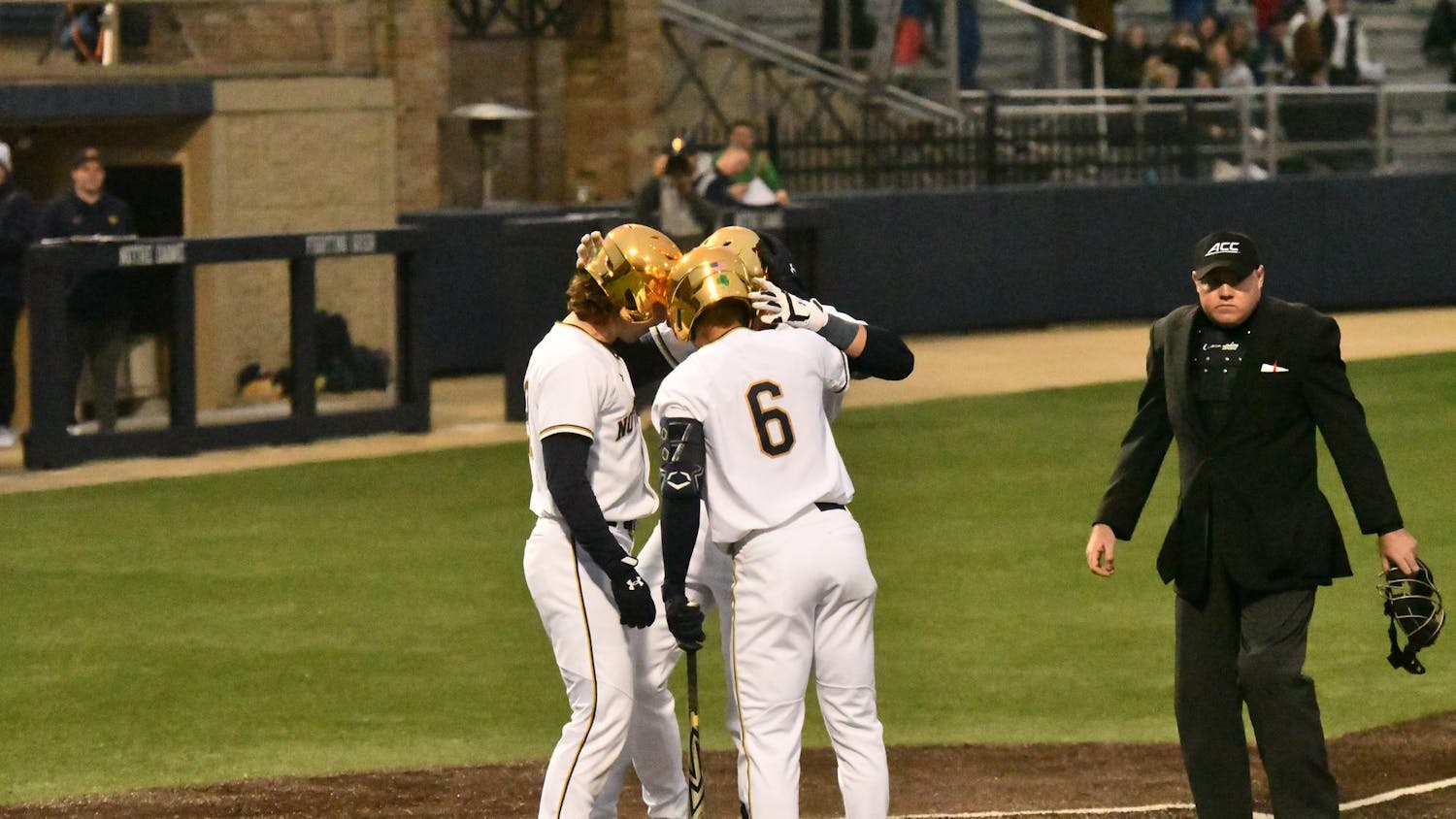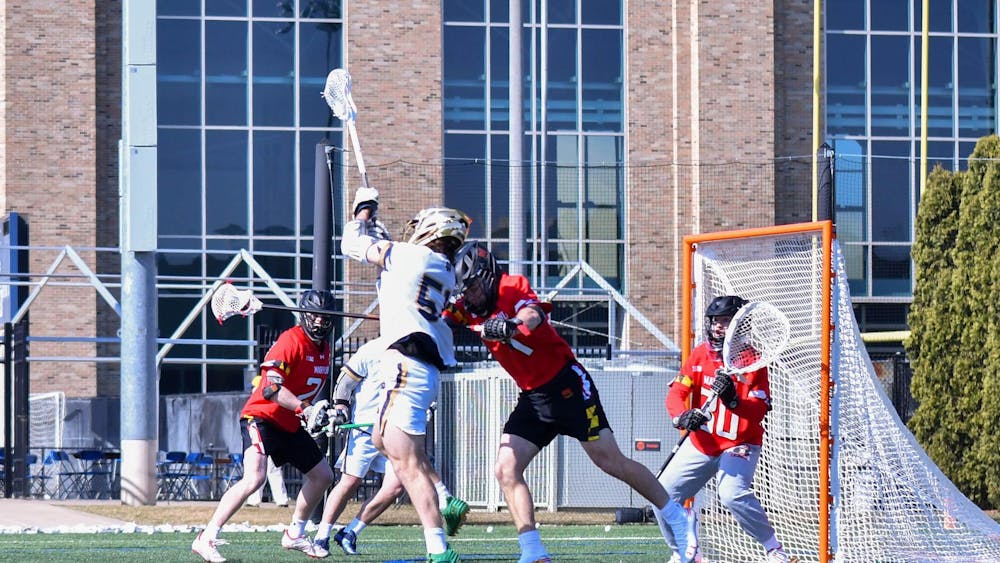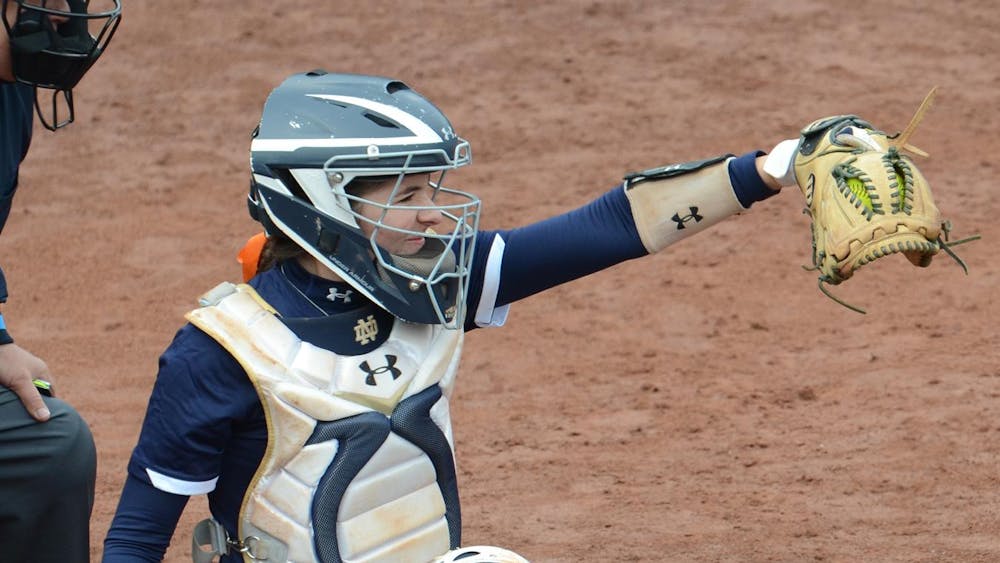"I sprint swiftly, with outstretched hands and closed eyes,
making a wish as it falls in my hands' cradle."

from "The Shining Manifestation"
--
All he heard was silence.
Terrail Lambert could not hear the crowd, the band or his teammates. He could only hear himself breathe.
He had just given Notre Dame an unlikely lead late against Michigan State in 2006 with a 27-yard interception return for a touchdown, capping a furious Irish rally in the fourth quarter and securing a 40-37 win over the Spartans.
But it still was not loud for the former Irish cornerback.

"It still didn't sink in until I watched it the next day on film," Lambert said in a phone interview. "I was like 'Wow, that place erupted.'"
Lambert's interception was his first of his Irish career and was forced by linebacker Maurice Crum's inside pressure on Spartan quarterback Drew Stanton. Crum came untouched up the middle and forced Stanton to lob a desperation pass intended for receiver Kerry Reed.
But the ball fell into Lambert's hands' cradle instead. He bobbled the ball for an instant before clutching it with both hands and sprinting swiftly into the end zone.
"I beat the receiver to the step and all I could remember was seeing the ball and I blink once and it's bobbling in my hands and I'm thinking 'Just squeeze it,'" Lambert said. "I cupped it with one hand and grabbed it with the left and I just saw open grass daylight."
The Spartans were up by four points and were facing a third-and-three with just over three minutes left in the fourth quarter but elected to throw the ball. Lambert said he was not surprised by the decision.
"A smart offensive coordinator is probably thinking 'They're expecting the run so we're going to pass on this play to throw them off,'" he said.
At halftime, the Irish trailed by 17 points in the rain and on the road to a bitter rival. But four second-half touchdowns, three on passes from quarterback Brady Quinn, and a stiff defense led Notre Dame back into the game.
"Going into halftime, we played the worst we could possibly play," Lambert said. "There's a reason to be cautiously optimistic going into the second half because we played our worst ball and now, all we have to do is play our best ball ... It was just one of those situations where our backs were against the wall and we didn't have any choice but to come out swinging and that's what we did."
The Irish defense only allowed 93 yards in the second half after surrendering 295 yards in the first two quarters. Michigan State gained fewer than 10 yards on five second-half drives and went backwards on three.
"With the whole pregame hoopla before and the elements with the weather, hostile environment, we just all had to take a deep breath, sit back and get back to playing our game," Lambert said.
Despite Lambert's touchdown with 2:53 left in the game, the Spartans still had a shot to beat the Irish. Michigan State was driving when Stanton again tried to hit Reed, this time on the sideline.
Stanton's pass ricocheted off Irish defensive back Mike Richardson, off Reed and into the arms of Lambert, who rolled out of bounds to ice the win for Notre Dame. Lambert picked off two of Stanton's final six passes.
"He ran a flag pattern and all I remember is Mike Richardson getting a hand on the ball and he made a spectacular dive and tipped it," Lambert said. "That was just what I needed, that split-second to catch up back to that receiver's hip.
"I remember looking at the ref like he was the judge and I was like 'Man, c'mon. My life is in your hands.' I saw him do the signal, throw his arms in the opposite direction and I was like 'Cool, we're home free now.'"
Lambert's game-winning and game-saving interceptions came as revenge for Notre Dame and redemption for the Oxnard, Calif., native.
In 2005, Michigan State planted its flag at midfield of Notre Dame Stadium after knocking off the Irish 44-41 in overtime. Irish coaches replayed the flag-planting incident in the week before the game in 2006, with the final tally somewhere in the double-digits, Lambert said.
"People always like to talk about USC and Purdue but being honest, in terms of sheer hatred, we probably disliked Michigan State the most, more than anybody else on our schedule so there's definitely motivation there," he said. "They don't like us, it's a heated rivalry. That's what makes the game fun."
The previous week, Michigan receiver Mario Manningham toasted Lambert and the Irish secondary for 137 yards and three touchdowns. Lambert said he received death threats from both fans and students following the 26-point loss.
"In one week, I went from being the most hated guy for giving up two touchdowns against Manningham from Michigan to being Defensive AP Player of the Week; going from hate mail to people praising me on campus," he said. "It's crazy how you can go experience one spectrum and then the other. ... You just have to keep an even keel the entire time. It's never too bad and it's never too good, that's what I always like to tell myself."
Lambert said he was prepared for the Spartans to attack him the next game.
"I told myself 'this would be a great opportunity to redeem myself' because I know they're going to come after me and they did, on multiple occasions," he said. "All I wanted to do was contribute and improve and I ended up having the best game. What's special to me about that game is that from that point forward, I just saw my game slowly but surely elevate."
Lambert, a 2008 graduate and film and television major, started at cornerback for three season with the Irish. He totaled 115 tackles, four interceptions and six pass breakups at Notre Dame before moving on to the NFL.
Despite running two 4.3-second 40-yard dashes at his pro day at Notre Dame, Lambert still went undrafted.
"I knew that was definitely a possibility because I was still under the radar," he said. "It didn't bother me really. Everything in my life, I earned anyways so if I had to go the long route, so be it. I wasn't resentful about it or hurt about it. I just took it with a grain of salt and kept on moving."
He bounced around the NFL for six years before finally calling it quits this year. Lambert is about to publish his second book of poetry after he self-published "Downtown Pastiche" two years ago. He estimated the book sold around 100 copies.
"I did it for my own personal reasons," he said. "Some people caught wind of it and more and more people encouraged me to publish it and I just told myself that I would when the time was right so that's what I did."
"Downtown Pastiche" was an anthology of experiences his Lambert's life, he said, but "100 Subliminal Miles" would be a reflection of his "deepest and darkest thoughts."
"I had once heard an author say that it's hard to write subconscious mind because you tend to write about the same things and I thought it presented a formidable challenge because I tend to think that I have a lot on my mind," he said. "That was the challenge I presented to myself. I put a bunch of pieces together and they're all written from my subconscious mind."
Lambert has also begun the process of becoming a firefighter in Southern California. He said the process can take up two years with various assessments - like a physical test, EMT courses and interviews - but he is confident in his abilities.
"The dynamics of firefighting and how daily life goes, it's a lot like being in the locker room," he said. "Essentially, you're a part of a team, you have a job to do, a role to fulfill day to day and it's important. It's a lot like being on the football field, especially being on defense. Anybody who's played defense will tell you that if you don't take care of your one-eleventh on the field, then it's all going to fail. Everybody depends on one another."
Until he becomes a firefighter, Lambert said he would continue to train kids in soccer, basketball, baseball and football.
Lambert, 27, lives in Rancho Cucamonga, Calif.
Matthew DeFranks at mdefrank@nd.edu












